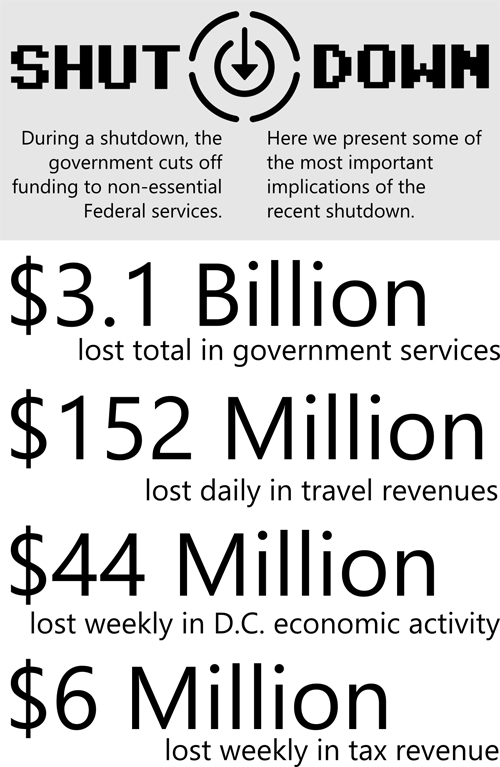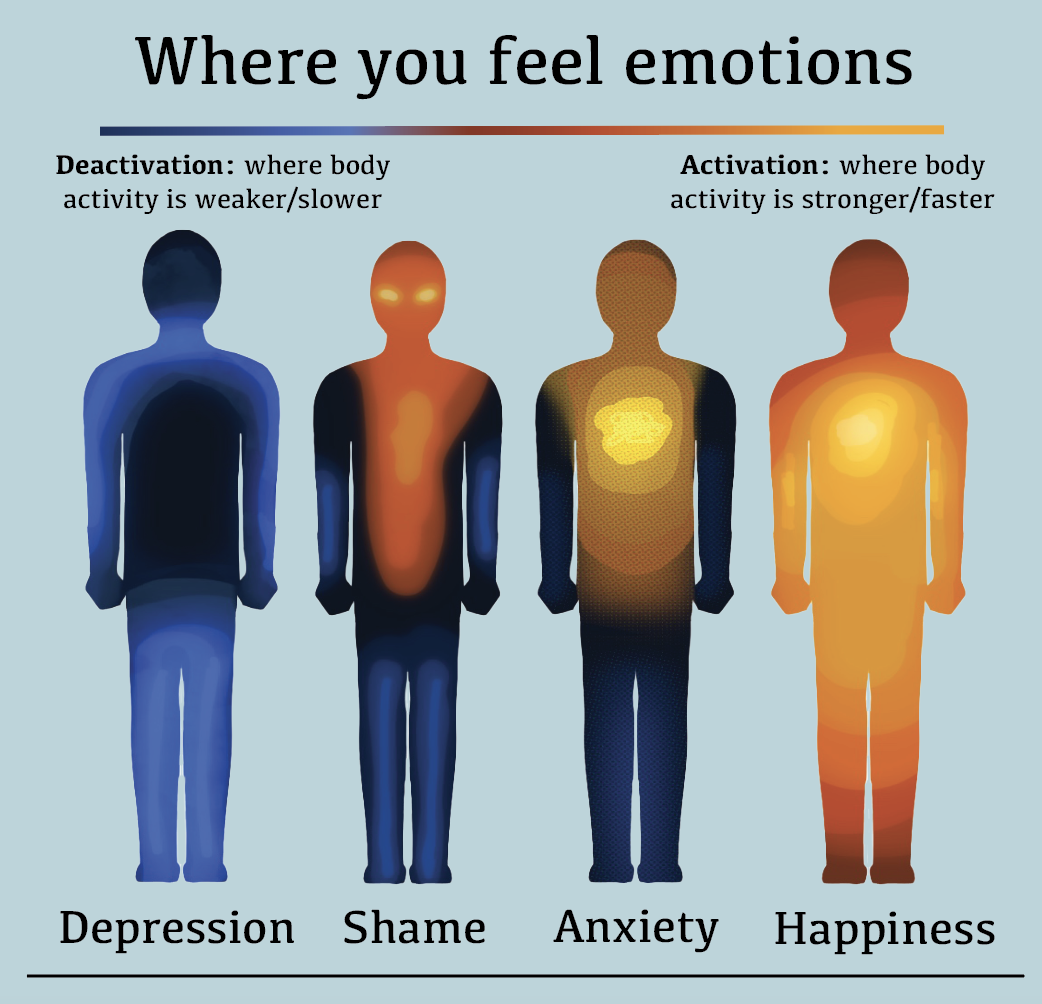The government shutdown has dominated the political discourse for the last month and a half, and I’m sure many people know the basic circumstances around which the government shutdown revolved. Basically, there was a contentious fight in Congress over the funding of President Obama’s signature health care law, and so we didn’t have a functioning government for a full 18 days.
There have been many studies done and articles written about the economic impact of the shutdown on the United States as a whole; it was bad, there’s no doubt about that. But what is discussed less is the impact the shutdown had on more out-of-sight parts of the nation. The biggest example of this is the shutdown’s effect on interns and students in Washington, D.C.
Many students at D.C. universities, according to ABC News, are also interns at D.C. institutions like the Smithsonian, the White House or offices on Capitol Hill. These interns are among the approximately 800,000 federal workers furloughed when the government shut down.
Unfortunately, the impact reaches beyond a simple summer internship. Many of these students, according to ABC, also rely on these internships for research credit along with classes, and the internship hours can be difficult to make up if they lose two and half weeks due to the shutdown. One student said she planned to sneak into George Washington University’s library to do research that she normally would do at the Smithsonian.
The shutdown made it impossible for college students to even get an education. It’s easy to debate about the United States’ fiscal future or the value of the Affordable Care Act. What’s non-negotiable is disrupting the lives and educations of the people that will be running the country in the near future.
The impact on education, however, goes far beyond college students in Washington, D.C. According to The Washington Post, the Department of Education was forced to furlough 94 percent of its employees and cut back funding for many programs like Pell Grants and Direct Student Loans. The shutdown affected the most vulnerable: low-income students.
And, according to the Department of Education, had the shutdown continued longer than it did, many federal funding programs for special education students could have been curtailed.
The budget debate that has raged for the past several years has mostly focused on taxes and entitlement spending, mainly Medicare, Medicaid and Social Security. That’s what most of the media coverage of the shutdown and debt ceiling debate focused on.
It’s worth remembering, though, the true human cost of partisan wrangling over the budget. While Congress debated over the direction they want the country to go in, students can not get scholarship money to go to college, low-income and special-education students cheated out of their everyday education and college students in D.C. impeded in their attempts to get work experience.
How would representatives from Congress feel if their own children couldn’t get an education in one of the most vibrant cities in the United States because the government literally could not fund itself?
The shutdown’s effect on students and education shows the true extent of Congress’s disconnect from the American public. It’s no wonder that their approval rating is, embarrassingly, 5 percent(lower than cockroaches and traffic jams.) Congress has spent so much time debating about the government that they’ve forgotten how to govern.









